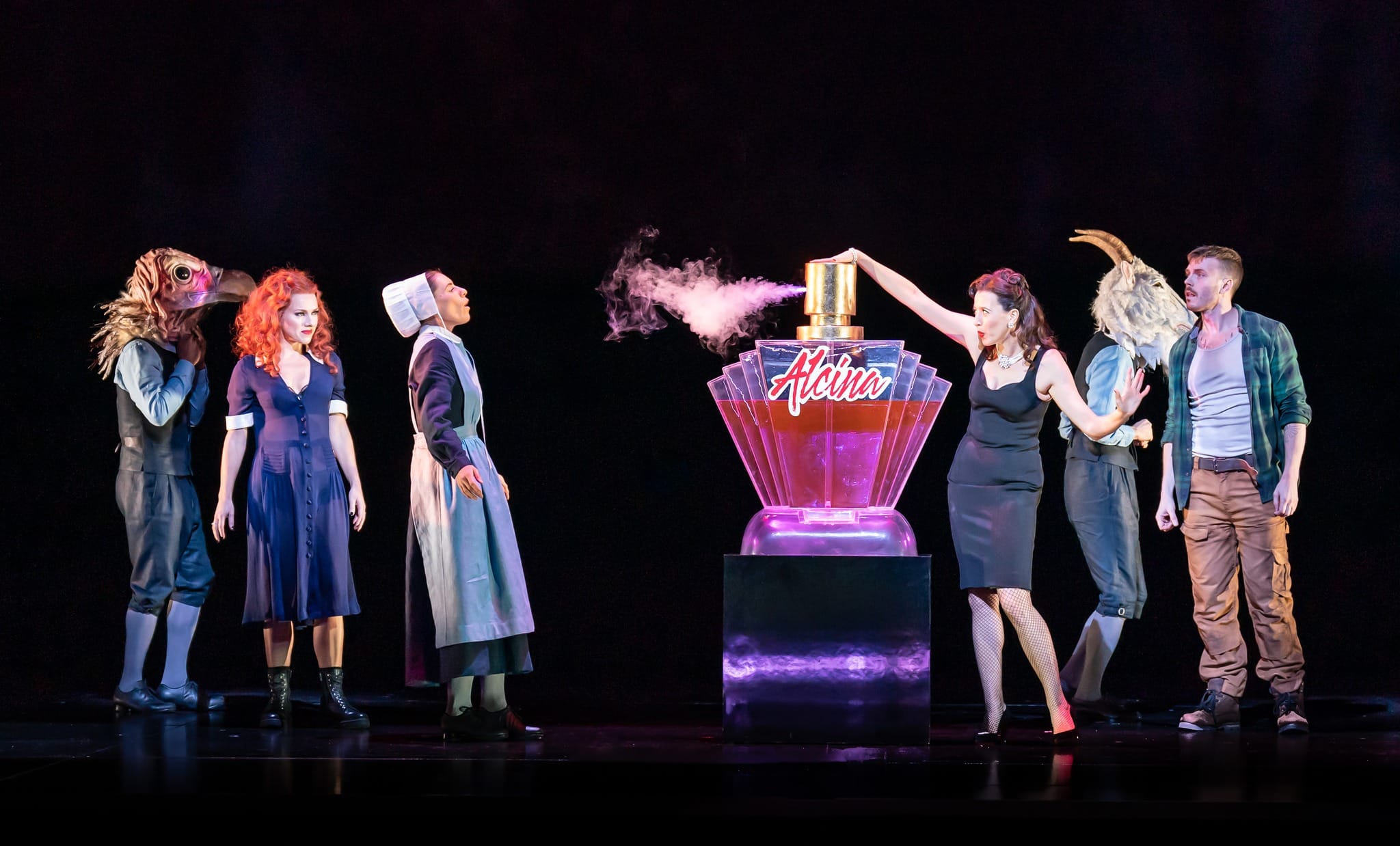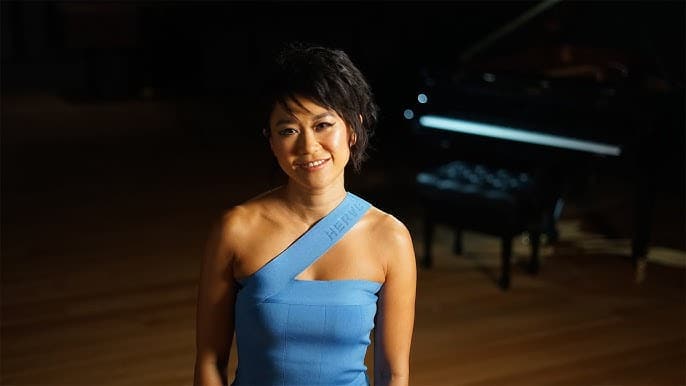First night review: Alcina in boxer shorts and one sock
NewsAlastair Macaulay reviews for slippedisc.com the new Richard Jones production at Covent Garden:
It’s a sign of the increasing ascent of Handel’s operas (and some of his oratorios) into today’s mainstream repertory that Alcina, first staged in London in 1735, has been given not one new English production this year but two. Tuesday’s new Covent Garden production by Richard Jones occurs only four months after Glyndebourne’s by Francesco Micheli. Both are odd, cleverly disconcerting new reinterpretations that hold the attention. Neither, however, is, remotely, a classic.
Alcina itself – a poetically tragicomic opera about games of love, necromancy, and control – does deserve a classic production. The title role, a Circe-like enchantress who lures lovers to her island before transforming them into wild beasts when they bores her – has been an important vehicle for foremost divas: Joan Sutherland, Arleen Auger, Renee Fleming, Anya Harteros, Joyce DiDonato, Cecilia Bartoli. The roles of Alcina’s latest lover, Ruggiero (originally written for a castrato), and of Alcina’s sister Morgana (coloratura soprano) can both become the opera’s juiciest roles, while Handel also gives major opportunities to Oronte (tenor), Oberto (boy soprano) – and to dance. Alcina is one of three operas for which Handel composed exquisite dance suites, for the French ballerina-choreographer Marie Sallé. Both the Glyndebourne and Covent Garden productions include dancing; neither, however, does any real justice to the subtle beauty of Handel’s dance imagination. (The great American modern-dance choreographer Paul Taylor was among those who have responded to Alcina’s ballet numbers.) Alcina is about Love Island; and its loves keep acquiring fascinating new facets.
In the new Jones production, with designs by Antony McDonald, Ruggiero and his wife Bradamante are Puritans, off to New World purity, when Alcina, an intensely secular and modern seductress in an elegant little black number and high heels, sprays magic perfume, bringing Ruggiero into her erotic thrall. Bradamante is worthy, loyal, ardent, Christian, but stocky: no rival in surface erotic terms for Alcina’s beguiling spells. This is fun, if a bit obvious. And Alcina’s island proves to be a tiny green park, with toy-like trees: sweet but harmless. The ex-lovers she turns into animals are humans with wonderful animal heads: they do most of the dancing. Sarah Fahie’s choreography, with eleven dancers sometimes joined by several singers, is lively but prosaic. The four-hour production is all picturesque, surreal, watchable, intelligent, entertaining, but not seriously moving.
Lisette Oropesa – long-limbed, svelte, lithe, pretty on face, form, voice, and vocal style – makes an entirely plausible Alcina. Subtly, her bright, light voice acquires new facets of doubt, pain, malice, and despair in the role’s successive arias. I find her small voice not captivating but charming, skilful, and expressive, and she’s admirably alert at every moment. Christian Curnyn, conducting, keeps the score both propulsive and suspenseful.
The evening’s biggest fuss was made about the adorable boy treble playing Oberto, Malakai M Bayoh. His three arias won ovations (what’s not to love about a brave child performer?) but also a few boos (well, what’s not to love includes flat singing and a reedy voice).
Emily D’Angelo – who made her Covent Garden debut as Sesto in Jones’s 2021 production of Mozart’s La Clemenza di Tito and played the title role of Handel’s Serse in this spring’s English Concert semi-staged production – brings her marvellously intense qualities of urgency and pathos to Ruggiero; her tall, broad-shouldered physique registers splendidly, while her mezzo-soprano voice has a vibrancy and edge that grasp the heart. As Morgana, Mary Bevan’s singing, although sometimes too tremulous, has moments of breathtaking and moving loveliness.
Jones gives his best direction to the loveplay between Morgana and Oronte, whom the tenor Rupert Charlesworth makes vividly complex: even the strain at the top of his voice becomes characterful. Although it’s fun to see a tenor stripped down to boxer shorts, Jones tops that by having Morgana/Bevan take one of his socks – and by making us believe that the amorous frolics that follow out of sight are lustily sincere. To the extent that Alcina is about games, Jones’s clever production is riveting. But it stays distant from the ways in which Alcina is about piercingly escapist illusion, anguish, and the need to control other lives.
Alastar Macaulay
press photo: ROH






Anyone who feels it’s acceptable to boo a child performer is a complete Jeremy Hunt.
From what I’ve heard from people who went it was one person booing Malakai and everyone else cheering him. Obviously racially motivated booing – no way would a talented white 12 year old get booed like that, regardless of whether there were iffy moments (and yes you are talented if you’re singing at ROH at 12).
I was near the chap in question and would be wary of concluding that his booing was ‘obviously racially motivated.’ Of course it’s possible that it was, but I can think of other explanations. I’m not sure it’s safe or helpful to jump to conclusions about the motivation or reasons.
Yes, some context is necessary. Thank you for pointing this out.
The context is that of a predominantly white, and privileged, audience booing a black performer.
The same thing happened at Bayreuth in 2019, when an (adult) black performer was booed in Tannhäuser. He was apparently badly shaken by the experience. How much worse could it be for a 13-year-old?
Shameful and deeply disturbing behaviour, in both cases.
How naive, at best.
So far there is nothing ‘obvious’ about the booing etc being racially motivated. Instead of banning him, talk to him, find out what the reaction is about. Then an informed decision might, repeat might, be made. It’s understandable that people feel protective about a young boy-so would I, but I don’t want to be in an opera house or society where I and others can’t protest. The theatre can and needs to be a place of challenge. If the audience member is being reactionary, he’s in good company with the many reactionary SD commentators. A relevent parallel might be the football manager who gets red carded and has to sit in the stands for three games. It’s what the individual manager does while he’s sitting in the stands that IS IMPORTANT. It is an opportunity for reflection that may be taken or not….. These are the wider questions that in a healthy society we can debate. My fear is that we have already slid a good way towards arrest for protests…… Do we want to end up in Putins Russia?
Racism in the review you just read?:
“His three arias won ovations (what’s not to love about a brave child performer?) but also a few boos (well, what’s not to love includes flat singing and a reedy voice).”
Actually there have been three productions in England this year. Opera North also did Alcina in February.
Putting the boot into a 12 year old boy.
The reviewer clearly has no shame. Only a step above the clown who booed him
Gag! The old triumvirate at ENO – Peter Jonas et al – would have done this a lot better.
Will Alastair Macaulay PLEASE stop reviewing the physical appearance of singers in this way.
‘Lisette Oropesa – long-limbed, svelte, lithe, pretty on face, form, voice, and vocal style’
Only the first few rows can see a singer’s face well enough to make any judgement – it is totally irrelevant.
Yep, especially mentioning ‘face and form’ before voice and vocal style, about a *singer*.